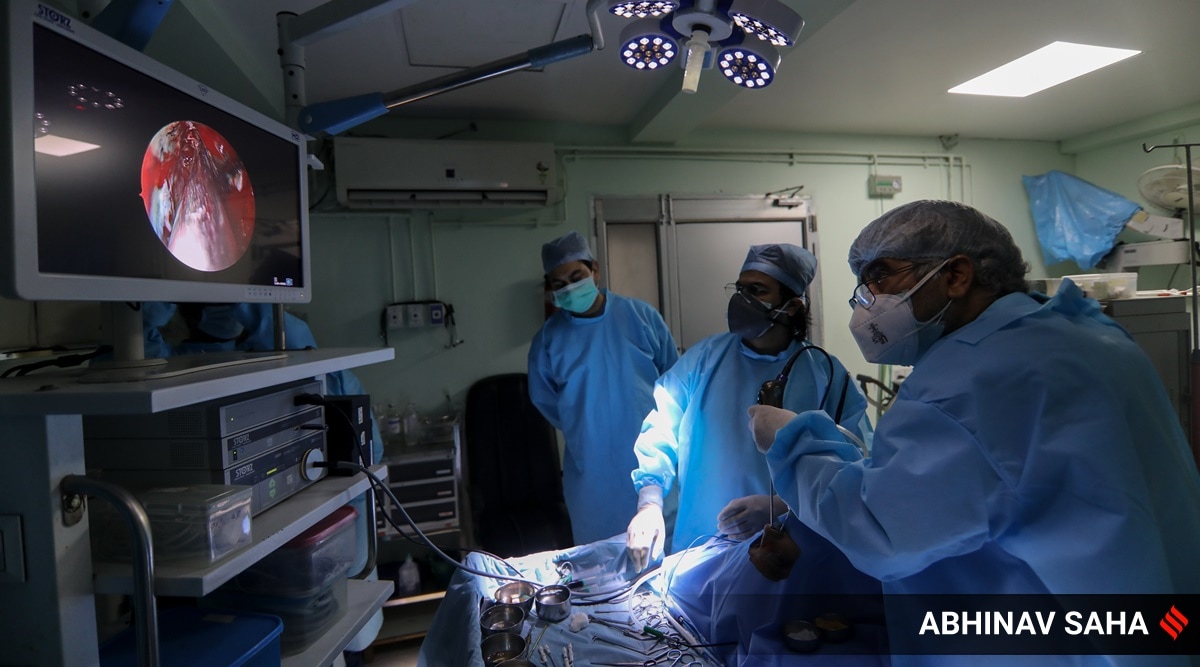 An ENT surgeon conducts surgery of a patient suffering from both white and black fungus. (Express photo by Abhinav Saha)
An ENT surgeon conducts surgery of a patient suffering from both white and black fungus. (Express photo by Abhinav Saha) In the last week, there has been a steady decline in new Covid-19 cases, with the number of daily deaths also witnessing a downward trend. However, the cases of mucormycosis, according to Prof. Jagat Ram, Director of PGI, have decreased only marginally at the same time, with patients suffering from the severe form of the disease seeking treatment at the institute.
Till now, as many as 151 patients of mucormycosis have been admitted to PGI — of which 106 are from Punjab, 12 from Chandigarh, 38 from Haryana, seven from Himachal Pradesh, one from Bihar, three from Uttarakhand and 18 from UP. At least 17 people at PGI have succumbed to the disease so far, Prof Ram said.
“Most cases are serious, and require a treatment of five to six weeks, with surgical intervention needed in cases of Rhino-Orbito-cerebral Mucormycosis (ROCM), to save lives. The drug deficiency is also an issue. In normal cases, the treatment is of 10 to 12 days. The institute now is also seeing cases of pulmonary mucormycosis and I think this situation will continue for at least a few weeks. The mortality rate is also likely to go up,” shared Prof. Ram.
Dr. Arunaloke Chakrabarti, Head, Department of Medical Microbiology, PGI, too stated that the management of mucormycosis is a challenge and early diagnosis and optimum therapy are important.
“We need a team approach of multi-disciplinary doctors. A three-pronged approach is required: control of underlying disease like diabetes and elimination of steroid therapy, extensive debridement surgery to remove all necrotic tissue, and antifungal therapy,” says Dr. Chakrabarti. Mortality in rhino-orbital type, he added, can be minimised with early diagnosis and management.
Amphotericin B is the drug of choice, though the drug has many toxicity-issues like kidney impairment and lowering blood level of potassium and magnesium.
- The Indian Express website has been rated GREEN for its credibility and trustworthiness by Newsguard, a global service that rates news sources for their journalistic standards.

